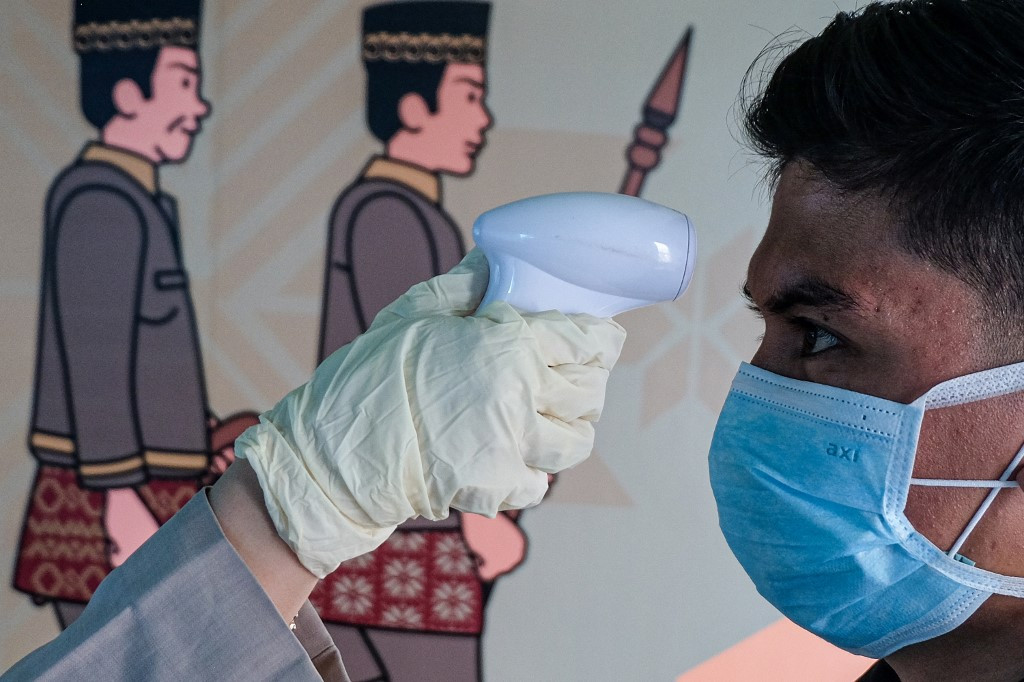Popular Reads
Top Results
Can't find what you're looking for?
View all search resultsPopular Reads
Top Results
Can't find what you're looking for?
View all search resultsCOVID-19: Villagers forego traditional ‘lockdown’ for PSBB in S. Sumatra
While the village of Jermun has an age-old "lockdown" ceremony for warding off plague, it has adopted contemporary measures against the coronavirus.
Change text size
Gift Premium Articles
to Anyone
F
or the residents of Jermun village in Ogan Komering Ilir regency, Palembang, South Sumatra, the physical restrictions imposed in the wake of the COVID-19 outbreak are nothing new.
Long before the coronavirus emerged, these villagers have relied on a ritualistic form of lockdown called bekunci to protect them against infectious diseases.
"Bekunci is part of a traditional ceremony called sedekah obat to prevent the spread of a plague," Ogan Komering Ilir spokesperson Adi Yanto said on Wednesday.
Meaning "medicinal offerings", he said that the sedekah obat ceremony was held for four days.
"The first night involves tolak bala," a ritual for "casting out threats", explained Adi. "All the villagers gather in an open field. Then, a group of youths place memali [agarwood] logs around them. They are forbidden to leave the circle until the ritual is over."
Read also: National COVID-19 task force chief urges public to obey PSBB to pave way for 'new normal'
A customary leader and the youths then sprinkle each villager with water that has been mixed with papaya leaves.
On the second day, the villagers are all barred from working their farms or paddies. They are also forbidden from wielding any sharp implements.
On the third day, the villagers may not engage in any strenuous physical activities.
"They believe that if they break any of the rules, great misfortune will befall them," Adi said.
On the first three days, the sons or the heads of every family must burn coconut husks to ward off danger.
They must also place lengths of yellow bamboo on their roofs to symbolize courage and prosperity. The number of bamboo poles represents the number of sedekah obat that the family has participated in.
“No villager dares to go out at night during the three days," Adi said.
On the fourth and final day, the villagers are released from the log circle and hold a celebration. They make traditional cakes like kolak dawet, gulo puan, lemang and sagon and feast on them in a field.
Read also: COVID-19: Govt to tighten security at ‘mudik’ ban checkpoints as Idul Fitri approaches
Adi said, however, that the villagers of Jermun did not perform the four-day ceremony for the COVID-19 outbreak.
"They followed the PSBB [large-scale social restrictions] and the physical distancing policy as advised by the government," he said.
Jermun village head Abus Roni said that none of the villagers had contracted COVID-19 to date.
"To prevent COVID-19 transmission, we set up health posts to check every visitor entering the village. The residents take turns manning the posts, and our midwives [examine] the visitors," he said.
South Sumatra has the third largest number of COVID-19 cases outside Java and Jakarta, and the seventh largest nationwide as of May 21, with 674 confirmed cases and 21 deaths. (nal)










